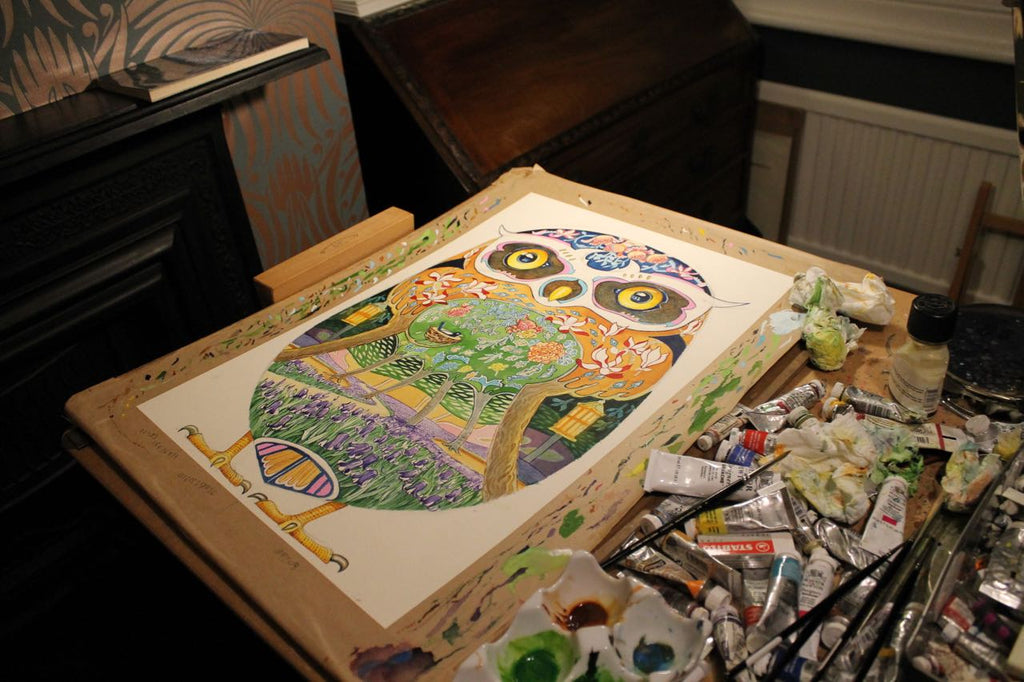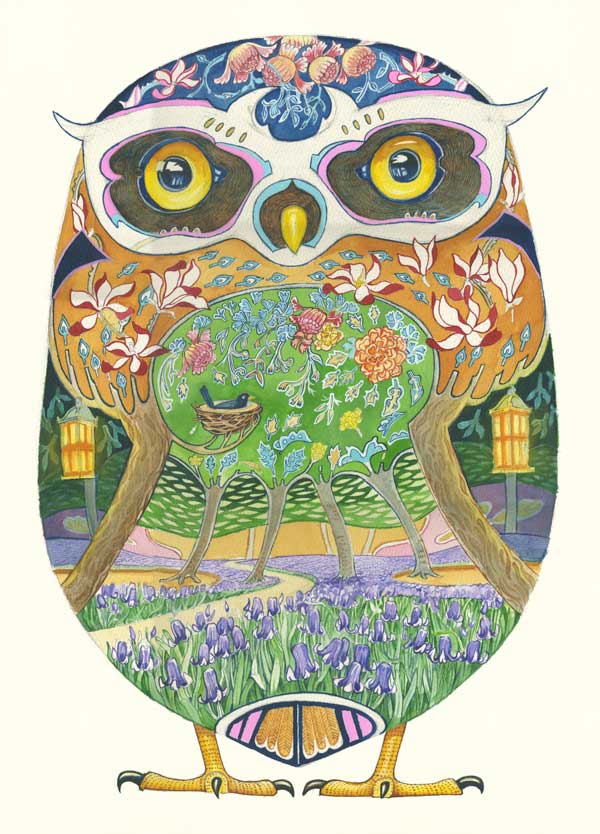Nine Hoots for Luck- Owl
With the exception of artists, inventors, and teenagers - we humans are diurnal daytime creatures on the whole, and although it’s one thing to be out and about during the night in a street lit urban environment, it’s a very different scenario if you find yourself in, say… oh, I don’t know, a forest per se. Where, if you’re lucky, you may hear the unmistakable cry or hoot of an Owl: natures very own nocturne, a stark reminder of the unknown peril of night, and a creature that has featured heavily in myth and folklore throughout the ages.
To hear an owl hoot in Ancient Rome foretold imminent death, and it is alleged that many a Roman Emperor fell shortly after the cry of an owl was heard; according to William Shakespeare the death of Julius Caesar himself was even predicted by the hoot of an owl:
This sinister take on the owl came from the Romans belief that the owl was actually a witch in animal form, and nailing a dead one (owl, not witch) to your front door would protect you from any harm the bird or witch may have caused when alive.
Thankfully not all historic folklore perceived the owl to be the bringer of ill: they had their uses as well.

Russian hunters would carry owl talons in their pockets, in the case that they died on the hunt and had to claw their way up to heaven. The English would consume owl broth to help cure Whooping-cough, and it was also believed that drinking a potion containing the ash of burnt owl eggs would improve ones eyesight. In India they cut to the chase and ate the actual eyes for the same purpose. Strange enough they also regarded an owls cry as being an alarm call for things yet to pass, and, like the Romans, one hoot meant imminent death - although six hoots would signal that guests were on their way, and as many as nine hoots were finally considered lucky. Hard times indeed!
But what of man's primal fear of the dark - whether it be a forest at night under the watchful eyes of an owl, a damp and cold cellar, or even just the dark corner of a bedroom - do you think this fear is something we will ever overcome?
To quote William Shakespeare once more:
“There is no darkness but ignorance."

